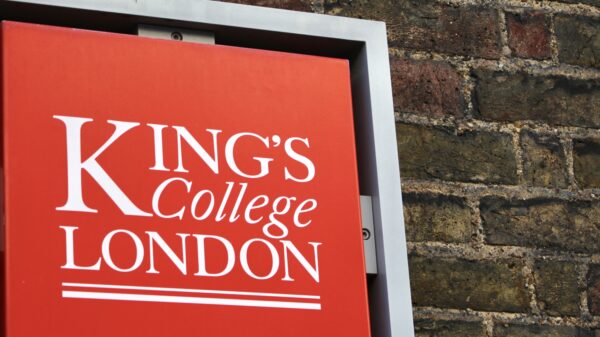On 22 November 2022, the former Australian Prime Minister Julia Gillard hosted a panel at King’s College London joined by various speakers discussing the issue of gender inequality as well as the work of the Global Institute for Women’s Leadership at King’s. Roar writer Alicia Khan gives an overview of the panel discussion, and what the institute does.
What is the Global Institute for Women’s Leadership?
Founded in 2018, the Global Institute for Women’s Leadership (GIWL) was established here at King’s College London with Julia Gillard as its chair. The institute is committed to breaking down the barriers which prevent the rise of women leaders globally, dedicated to addressing and combatting the systematic challenges related to gender inequality issues within politics, media and the workplace.
Roar recently attended a panel discussion in Bush House hosted by Gillard titled ‘Not just a ‘women’s issue’: how gender equality benefits men too’. The event included in depth information about GIWL, as well as the benefits that gender equality can have globally. For example, one of the speakers on the panel, Tomas Chamorro-Premuzic, mentioned that if women did have the same opportunities as men within the work sphere, global gross domestic product would increase by an estimated $30 trillion dollars a year. The discussion focused on showing that not only would gender equality provide a more equal basis for opportunities within the workplace, but would also be beneficial for the world economy
So why is gender inequality still an issue?
Now, with all these positive impacts gender equality can have, the panel then began to discuss why it was that none of this was happening. Why are women not getting as many opportunities as men? Why aren’t as many men motivated to solve the problem? This question was answered by Tomi Isaacs, a senior director of Catalyst: a non-profit organisation focusing on equality and inclusion. Isaacs talked about the three reasons why many men are not as motivated in breaking gender inequality barriers. First, she talked about apathy, and how many men do not believe it is their job too to strive for gender equality. Next was fear; Isaacs talked about how many men do not want to engage in gender equality movements and programmes due to fears surrounding perhaps a loss of status which is overtaken by a woman, or even the fear of being judged by other men just for taking part in such a movement. Finally, she mentioned how 51% of men were ignorant towards the issue, thus not even recognising that it is a problem in the first place- an issue which is significant in explaining why gender inequality is not being tackled with more dedication.
 Who is Julia Gillard?
Who is Julia Gillard?
As a student at King’s, you might be surprised to hear that you are much more connected to the former Australian prime minister than you thought. Julia Gillard is the former 27th Australian Prime Minister and is to this date, the only ever woman to hold the role in Australia. Now, this article can’t go any further without addressing her famous “misogyny speech” where she spoke against misogyny and sexism during a Parliamentary session, in response to accusations from Tony Abott, the then-leader of the opposition. Subsequently, the speech has played a big role in cementing Gillard’s position as a well-known politician in the global political sphere. Beyond that single speech, Gillard is known for the prominent role she played in Australian politics, as well as working towards opportunities for more women to become leaders.
How can you get involved?
For starters, we all know and have seen that gender inequality is not something that can be overcome overnight. However, as an individual, there is so much you can do to help the movement. You could start by opening the conversation of gender inequality up with those around you, especially with those within the workplace. Also, no matter who you are or how much you know about the issue of gender inequality, getting involved with GIWL is a great way to integrate yourself within this prominent conversation. By signing up to its mailing list, you’ll be the first to hear about new research and events such as the above panel discussion. This is a great way to learn more about the ways to break down gender inequalities as well as being able to hear experiences from past leaders such as the former Australian PM. Many people are not aware of Gillard’s relationship with King’s, although it has gained more publicity from ‘The Rest is Politics’ podcast, where journalist Alistair Campbell interviewed Gillard; their topics included her past leadership role, her partnership with King’s, and her work as chair of GIWL. Therefore just starting a conversation about the topic can go a far way in educating those around you, making them more aware issues and ways of working to solve them.
More information on the Global Institue for Women’s Leadership can be found on the King’s website as well as ways to join in!














